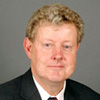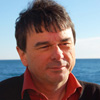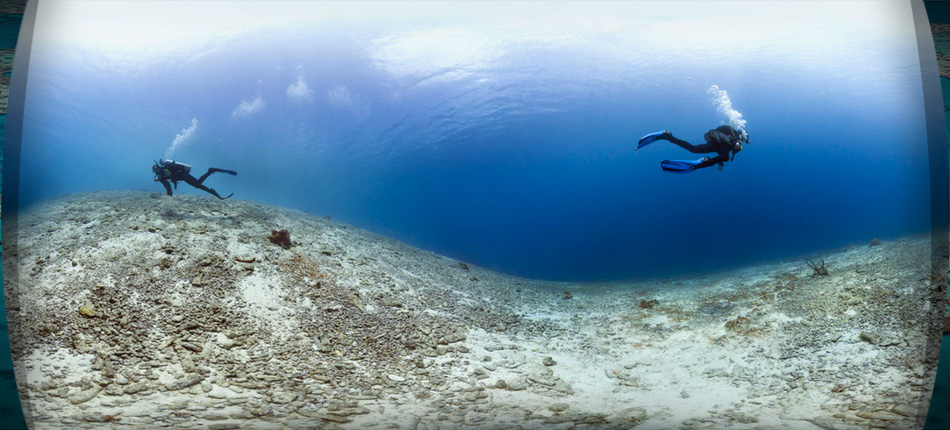Scientific Oversight
The AXA XL Global Reef Record’s work was overseen by an independent Science Steering Committee.
This committee of eminent scientists met on a regular basis and oversaw the general direction and content of the Record to ensure scientific validity and relevance. Committee members are all leaders in their chosen fields of expertise.
Much of the data included in the record is sourced from the XL Catlin Seaview Survey, which itself is peer-reviewed by the Science Steering Committee, with the balance of content being sourced from other highly respected, peer-reviewed scientific bodies (NOAA, World Resources Institute etc).

Dr. Russell Reichelt
Chairman and Chief Executive, Great Barrier Reef Marine Park Authority

Prof. John Bythell
Pro-Vice Chancellor (Research and International), University of the South pacific

Prof. Meg Caldwell (Chair)
Meg Caldwell serves as the executive director for the Center for Ocean Solutions. She also directs the Environmental and Natural Resources Law & Policy Program at Stanford Law School, where her research and teaching focuses on the use of science in environmental and marine resource policy development and implementation as well as private and public incentives for natural resource conservation. She is also an honorary professor in the Global Change Institute at the University of Queensland, Australia.
She served on the California Coastal Commission from 2004-2007, including two years as its chairperson. While chair of the Commission, she also served on the board of the California Coastal Conservancy. She is a regular in Washington, D.C. and Sacramento alike, working with elected officials, ocean and coastal agencies and their stakeholders to tackle major challenges with practical approaches. She has testified in Congress regarding reauthorization of the National Marine Sanctuaries Act and the ecological and economic impacts of the BP Deepwater Horizon oil disaster. She also served as a senior consultant to the National Commissions on the BP Deepwater Horizon Oil Spill and Offshore Drilling, providing both oral testimony and written reports to the Commission on recommendations to reform federal oversight of offshore exploration and drilling. From 2004 to 2011, she was a member of the California Marine Life Protection Act Blue Ribbon Task Force for the central, north central, south and north coasts. Her work with the Task Force helped the State of California establish the largest network of marine protected areas in the nation.
Before joining the Stanford Law School faculty in 1994, Prof. Caldwell was an instructor at San Jose State University and the University of California, Davis Extension; counsel for MicroCLEAN, Inc.; a member of the City of Saratoga Planning Commission; and an associate in the environmental law group of McCutchen, Doyle, Brown & Enersen. She earned her B.S. in business administration (with an emphasis on economic analysis and policy) from the University of California at Berkeley and her J.D. from Stanford Law School.

Russell Reichelt
Russell Reichelt joined the GBRMPA in 2007 as Chairman and Chief Executive. Dr Reichelt is a board member of the Great Barrier Reef Foundation and the Australian Maritime Safety Authority. He began diving on the Great Barrier Reef in 1968 and worked as a research scientist at the Australian Institute of Marine Science in the 1980s studying the ecology of coral reefs, particularly the crown-of-thorns starfish.
He has a PhD in marine science and has served as CEO of the Australian Institute of Marine Science, Chairman of the Fisheries Research and Development Corporation, and as a member of Australia’s State of the Environment Committee. He has previously chaired the National Oceans Advisory Group, CSIRO's Wealth from Oceans Flagship Advisory Committee and Seafood Services Australia Ltd. He is an Adjunct Professor at James Cook University and the University of Queensland; and is a Fellow of the Australian Academy of Technological Sciences and Engineering, the Institute of Marine Engineering, Science and Technology (UK) and the Australian Institute of Company Directors.
He was appointed as Chairman of the Authority on 1 November 2007 for five years, and reappointed on 1 November 2012 for a term concluding on 31 October 2017.

John Bythell
The University of the South Pacific recently announced the appointment of Professor John Bythell as the University’s new Pro Vice-Chancellor (Research and International).
Professor Bythell was previously the Director of Research in the School of Biology at Newcastle University, UK. Specializing in coral reef biology, he led the Coral Health and Disease Laboratory at Newcastle, with on-going and recent research programmes in Australia, the Caribbean, Solomon Islands and Thailand
His primary research is focused on molecular microbial ecology of emergent diseases in reef corals and understanding the stress responses of corals to environmental change. He was one of four UK scientists involved in the Coral Reef Targeted Research Programme (GEF/World Bank), as part of the Coral Bleaching Working Group, At Newcastle, Professor Bythell acted as theme leader for marine environmental systems research across the university and was involved in the preparations for the UK Research Excellence Framework (2014) assessment of research quality.
Among his other accomplishments, Professor Bythell also acts on the UNESCO-Intergovernmental Oceanographic Commission ad hoc committee on coral bleaching and is on the Programme Committee of the Western Indian Ocean Marine Sciences Association, Marine Science. At Newcastle, Professor Bythell acted as theme leader for Management programme, which manages and distributes research funding across east Africa and the western Indian Ocean on behalf of the Swedish development agency, SIDA.

Denis Allemand
Denis Allemand is Professor of Biology at the University of Nice-Sophia Antipolis and Scientific Director of the Centre Scientifique de Monaco. He obtained his PhD in pharmacological sciences in 1986 from the University of Montpellier II (France). His main field of research is on comparative physiology of marine organisms, in particular reef-building corals. He has published over 100-refereed papers and numerous book chapters.
Allemand's recent work on corals has placed particular emphasis on both biomineralization and symbiosis in corals. He is interested in the mechanism of formation of coral skeleton and more particularly on the physiology of skeletogenesis (ion transport, organic matrix characterization) and effects of environmental changes such as ocean acidification. He is also interested in the mutual adaptation of both partners (animal host and zooxanthellae) of the coral symbiotic association to the symbiotic state, and more particularly to the physiological, molecular and genomic relationship between zooxanthellae and their host.
He is a member of numerous scientific committees including the Scientific and Technical Committee of the Foundation Prince Albert II, the Scientific Committee of the Oceanographic Institute - Foundation Prince Albert I, the Scientific Committee of the Ecole Pratique des Hautes Études, the Administration Council of the Observatoire Oceanologique de Villefranche/Mer and he is also a member of the European Academy of Arts, Sciences and Humanities. His interests also extend to archaeology and he has published extensively on his work in Provence.

William Curry
William Curry is the president and director of the Bermuda Institute of Ocean Sciences (BIOS). Prior to joining BIOS Bill was a Senior Scientist in the Department of Geology and Geophysics at the Woods Hole Oceanographic Institution (WHOI) and the Director of the WHOI Ocean and Climate Change Institute (OCCI). Bill has twice served as a Program Director at the National Science Foundation in the Division of Atmospheric and Geospace Sciences – from 1988 to 1990 and again from 2011 to 2012. From 1995 to 1999, he was the Chair of the WHOI Department of Geology and Geophysics and he served as the OCCI Director from 2001 to 2005, and returned to the position again in 2007.
Bill studies the past history of climate and ocean circulation, particularly how large changes in ocean circulation and chemistry have affected the carbon cycle and ice age climate. He served on the Ocean Studies Board of the National Research Council for six years as well as numerous National Science Foundation (NSF) and National Oceanic and Atmospheric Administration (NOAA) advisory and review panels. In 2004, he was elected Fellow of the American Geophysical Union (AGU).
Bill has participated in 13 oceanographic expeditions (ten as Chief Scientist) to collect sediment cores for climate reconstructions. The expeditions have returned more than 400 cores from a variety of regions in the North and South Atlantic Oceans.

